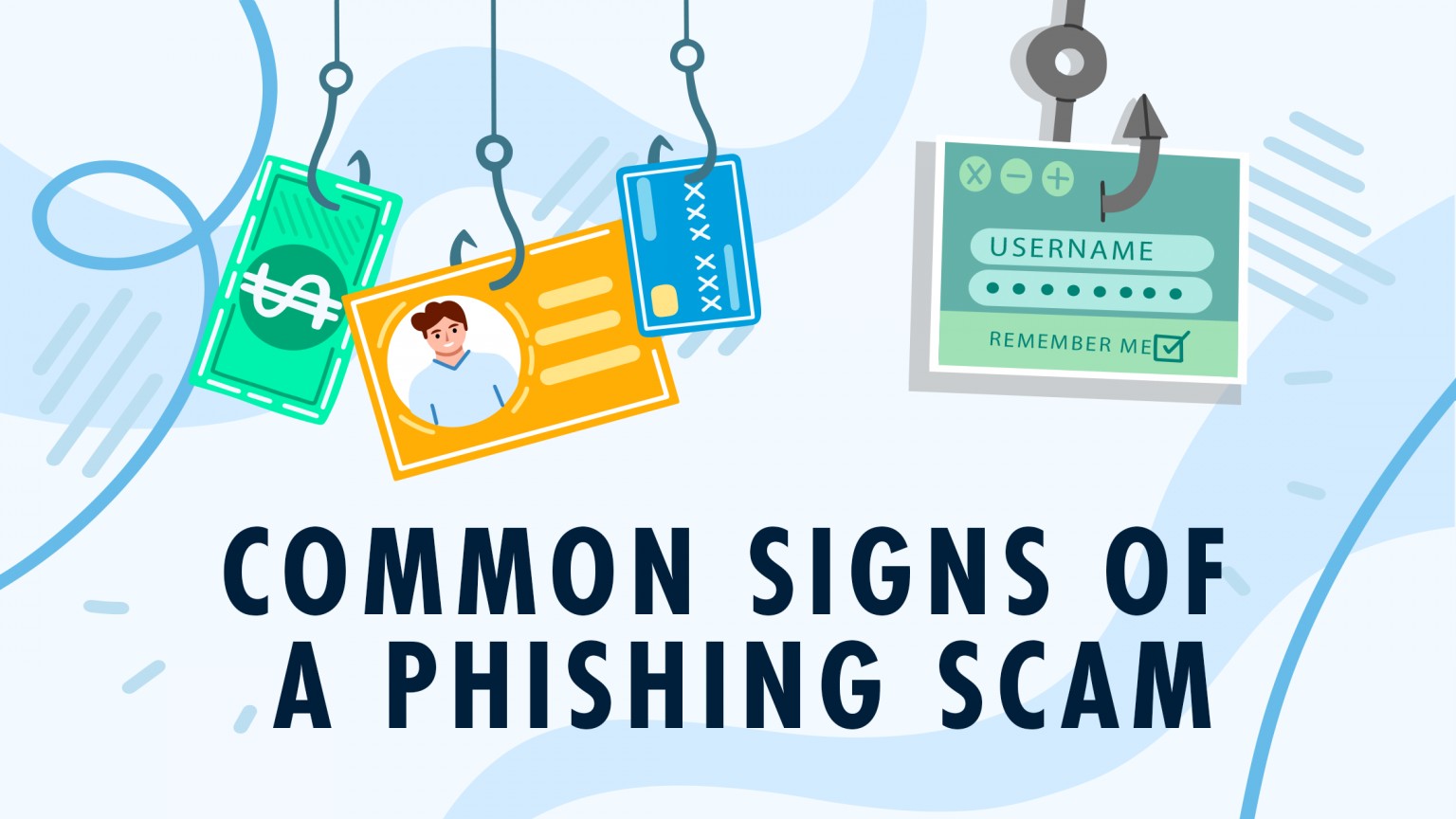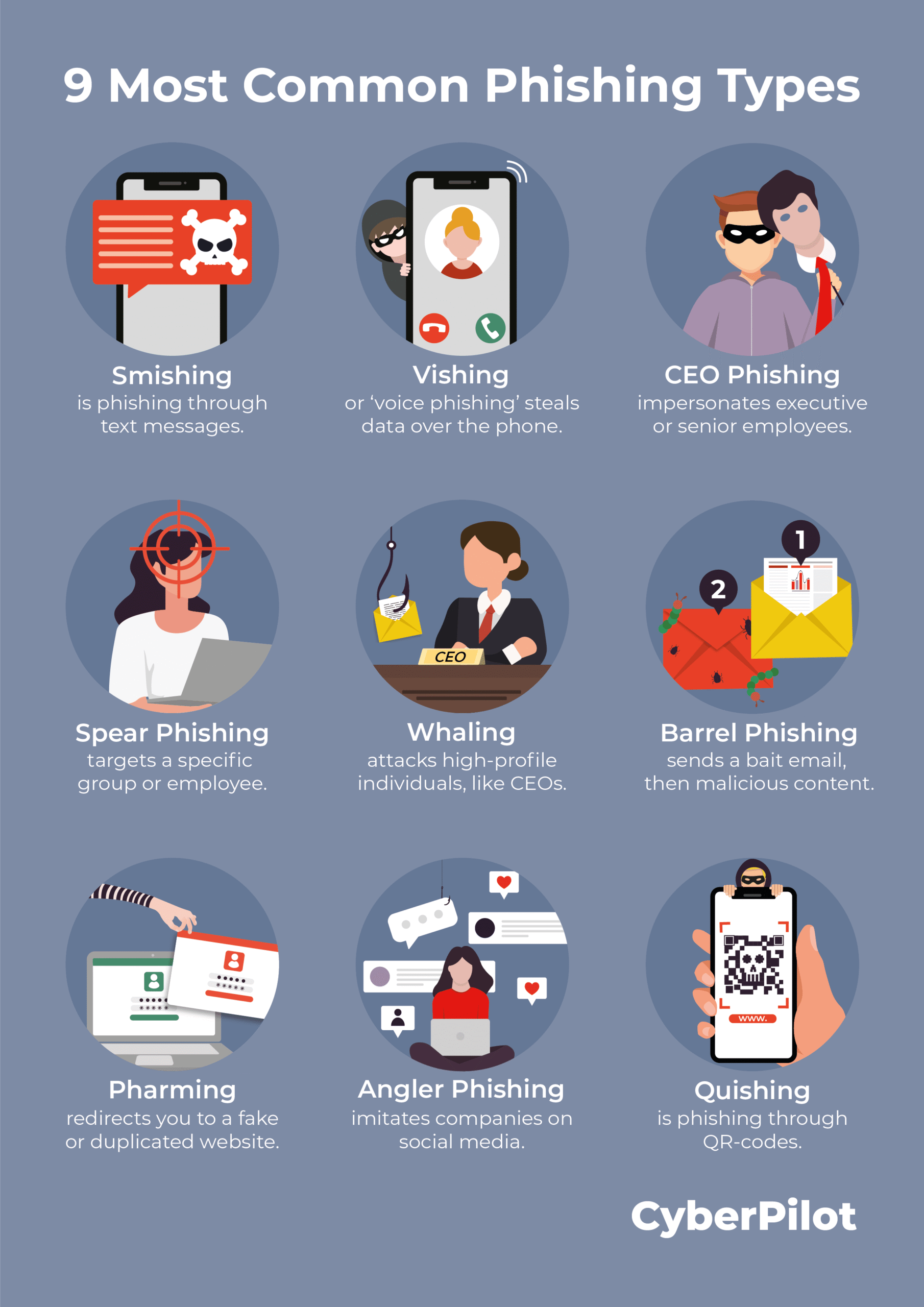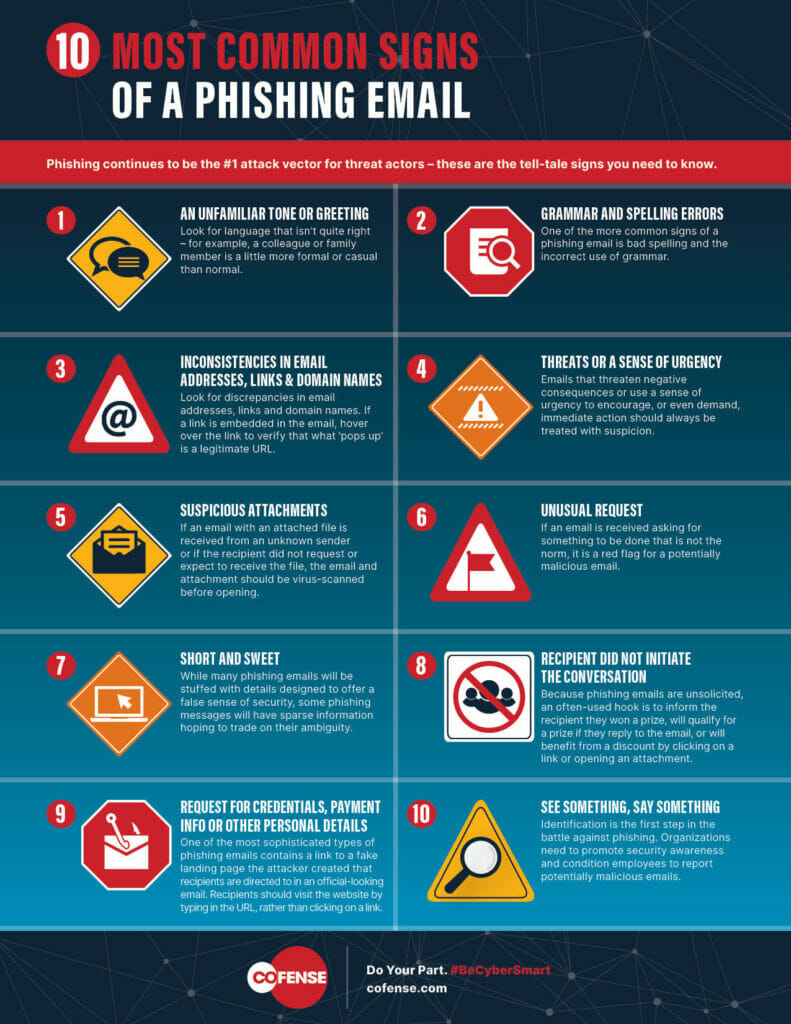The Most Common Phishing Scams

Understanding the Threat
Phishing scams are among the most prevalent cyber threats facing individuals and businesses today. These attacks use deceptive emails, messages, or websites to trick victims into revealing sensitive information. With AI-powered tactics and emotional manipulation, phishing scams are becoming harder to detect and more damaging than ever.
Types of Phishing Scams

- Email Phishing – Fake emails impersonating trusted brands or services, often urging recipients to click malicious links or download attachments.
- Spear Phishing – Targeted attacks using personalised information to deceive specific individuals, often within organisations.
- Smishing – SMS-based phishing that tricks users into clicking links or sharing credentials via text messages.
- Vishing – Voice phishing scams where attackers impersonate support agents or executives over the phone.
- Business Email Compromise (BEC) – Attackers pose as company executives to authorise fraudulent transactions.
- Whaling – High-level phishing targeting senior executives, often involving fake invoices or urgent requests.
Real Case Scenarios

Learning from real-world examples helps us understand how phishing scams unfold and how to prevent them.
- Target Data Breach (2013) – Attackers gained access to Target’s systems via a third-party vendor compromised by a phishing email. Millions of customer records were exposed.
- Facebook & Google Scam (2013–2015) – A Lithuanian attacker impersonated a supplier and tricked employees into wiring $100 million via fake invoices.
- Discogs Marketplace Scam – Users were urged to complete orders off-platform via spoofed emails. Discogs responded by educating users on recognising urgency and off-site links.
- Pleo Security Alert – Customers received guidance on identifying scam emails and protecting login credentials, including advice on freezing cards and reporting suspicious messages.
- VIPRE Simulations Lab – A training platform that uses real phishing scenarios to teach employees how to spot and respond to threats like vishing, smishing, and email fraud.
Reflective IT Tip
Always verify the sender’s email address, avoid clicking on unfamiliar links, and never share sensitive information unless you’re certain of the source. When in doubt, report it.
Protect Your Organisation

Reflective IT offers phishing awareness training, incident response planning, and email security solutions tailored to SMBs. Contact us today to strengthen your defences and build a cyber-aware culture.
📞 0207 317 4535 | 📧 support@reflectiveit.com
